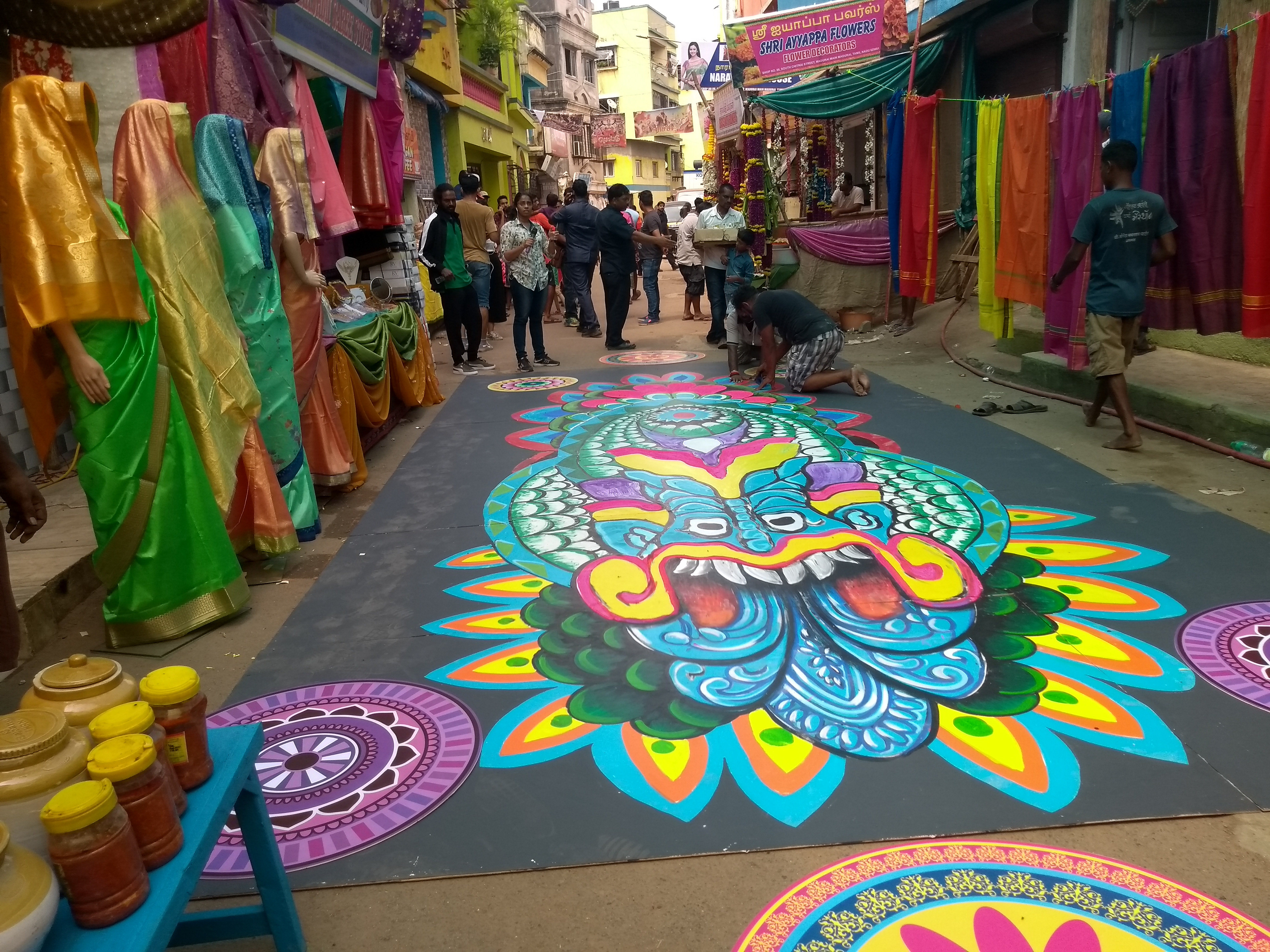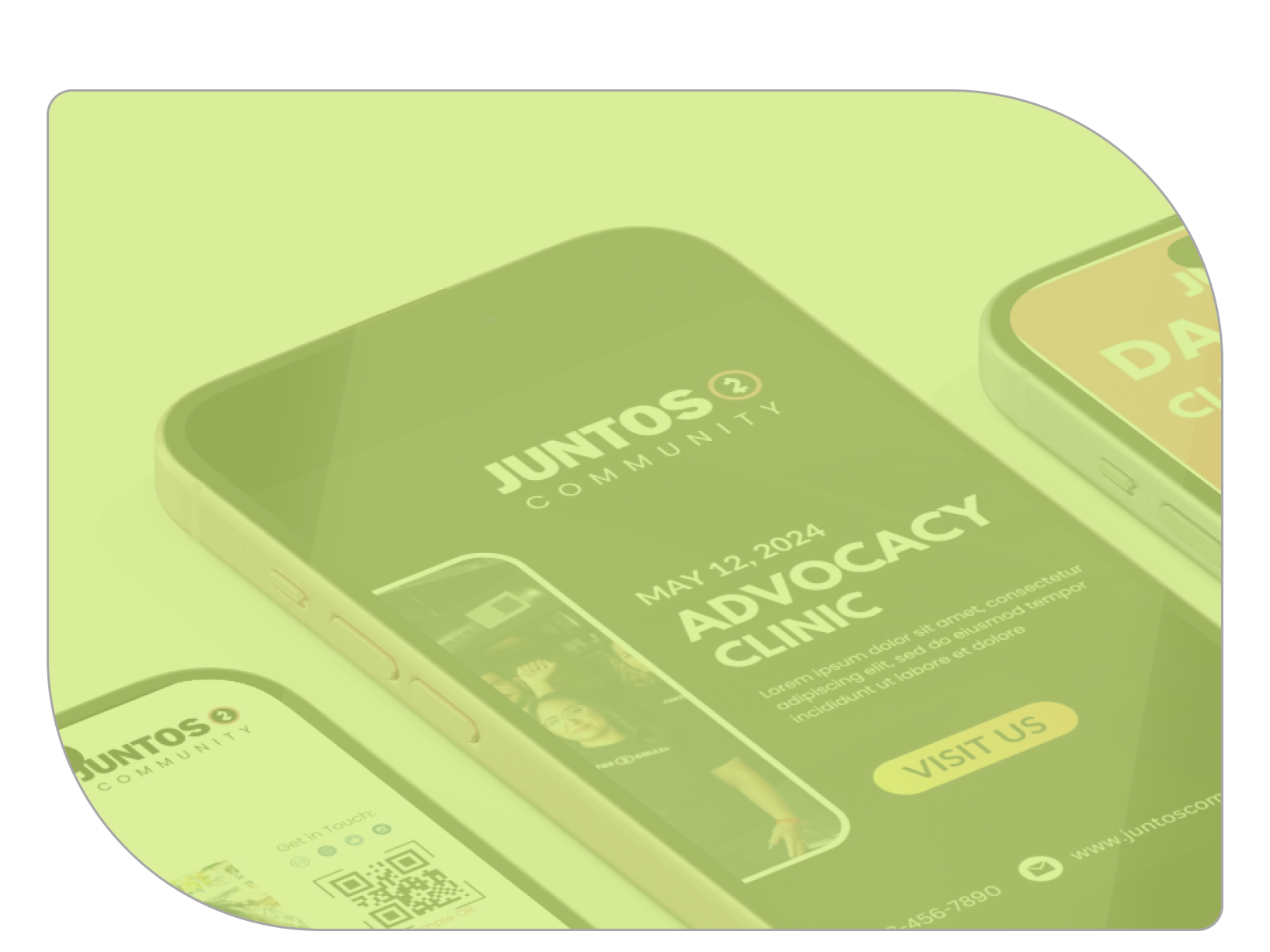COURSEWORK
Design Engineering Studio @Harvard MDE
with Cate Tompkins, Elizabeth Price
Timeline: ~2 Months
COLLABORATED WITH
Product Design & Development, Engineering, Electronics, AR/VR Specialists, Healthcare Experts, Nurses, Chronic Disease patients (Users)
Challenge
Individuals managing chronic diseases struggle with inconsistent health monitoring and delayed feedback from healthcare providers, leading to frequent hospital visits and suboptimal health outcomes. (~1.15 hours each time)
Solution
Hive provides an multi-modal home health system with continuous monitoring, data analysis, and timely feedback, empowering users to manage their health effectively and reducing the need for frequent hospital visits.
Hive takes the burden off of the person and sends health data trends to their physician to provide timely lifestyle recommendations.
Watch the demo video to learn more about how it works.
We designed a platform to deliver easy-to-understand insights and proven lifestyle recommendations, helping people make informed decisions without clinical complexity.
From concept to execution, this end-to-end product design emphasizes clarity, cost-effectiveness, and trust—all within a modular system built for scalability.

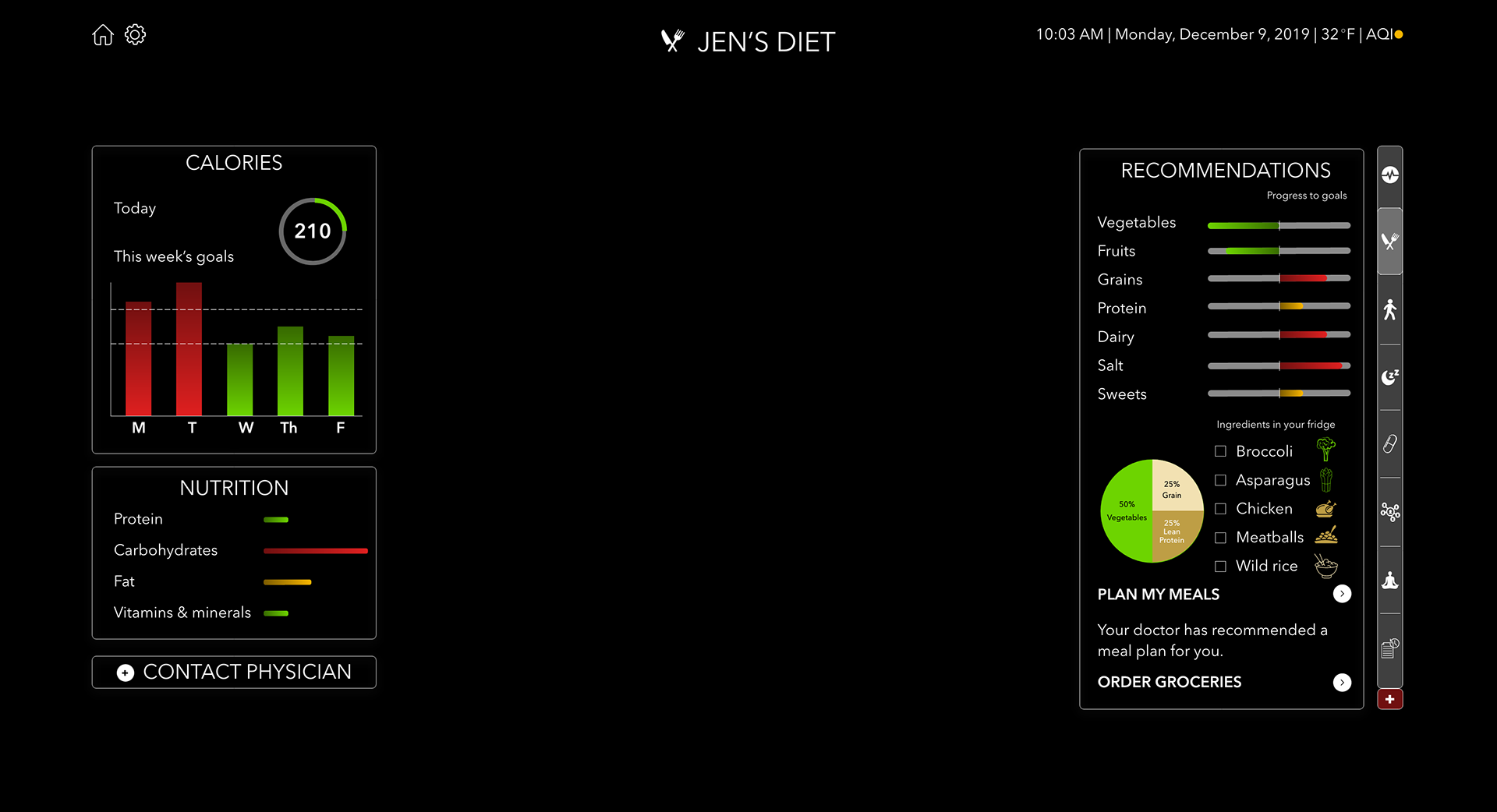
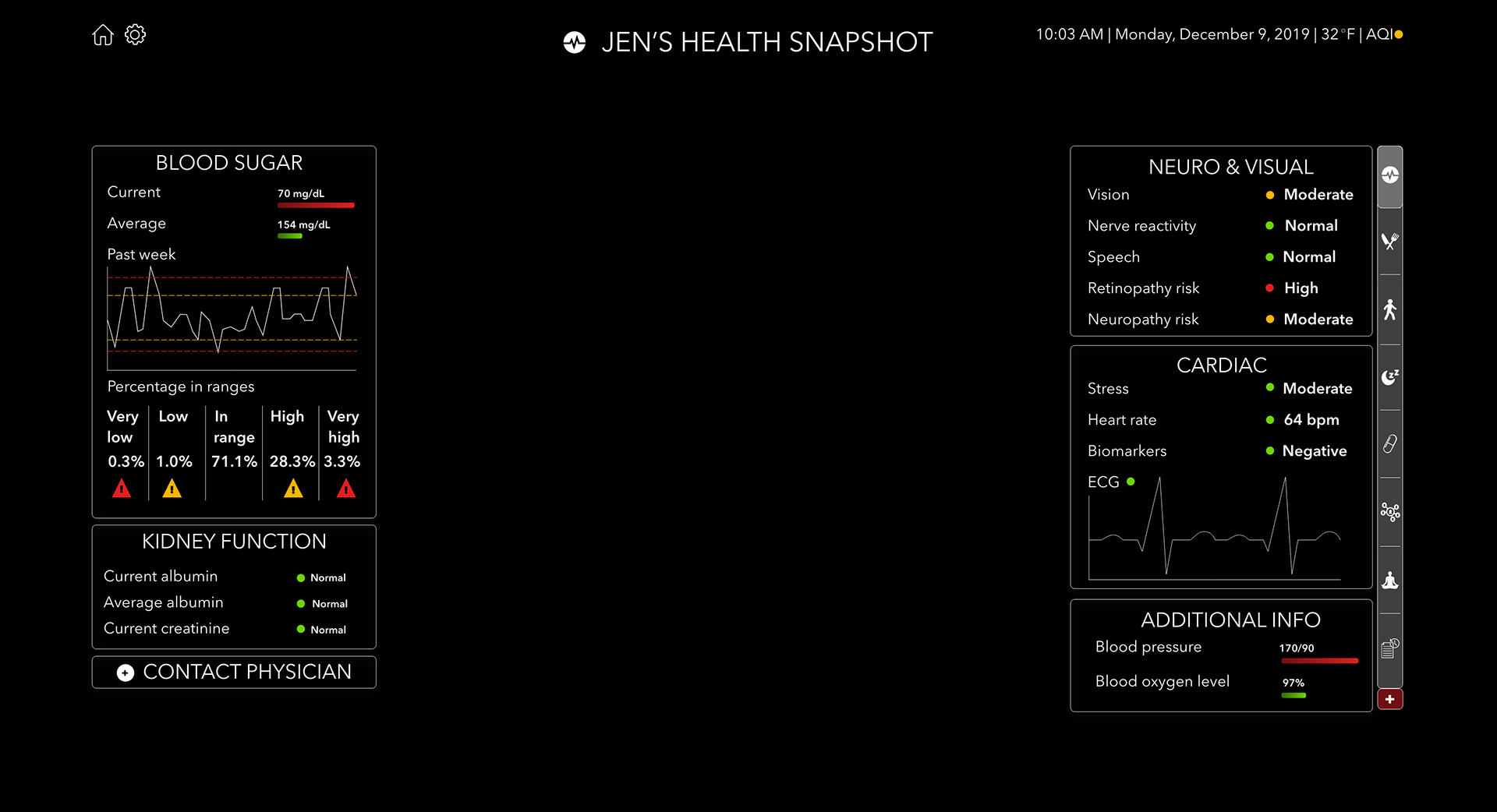
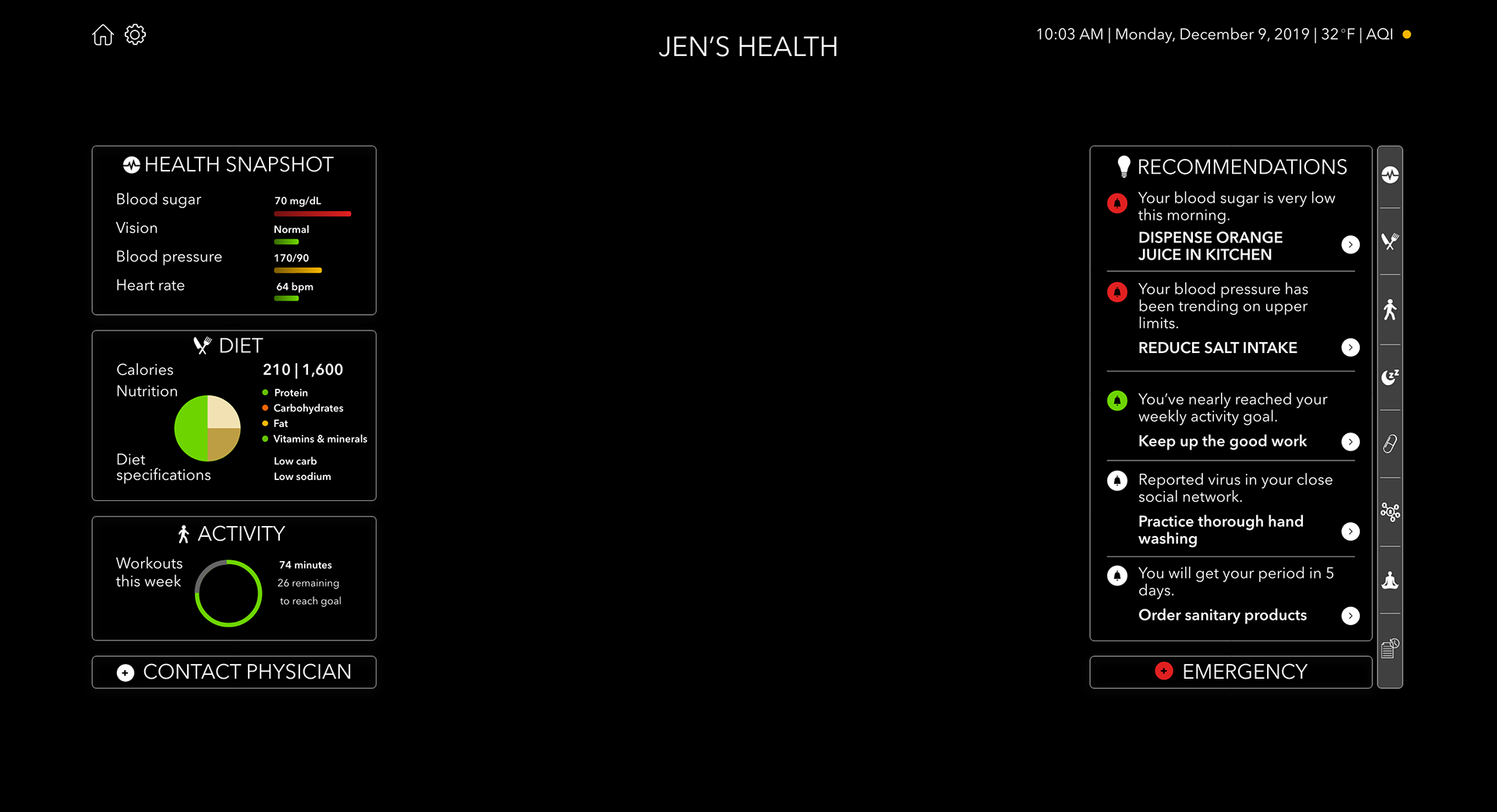
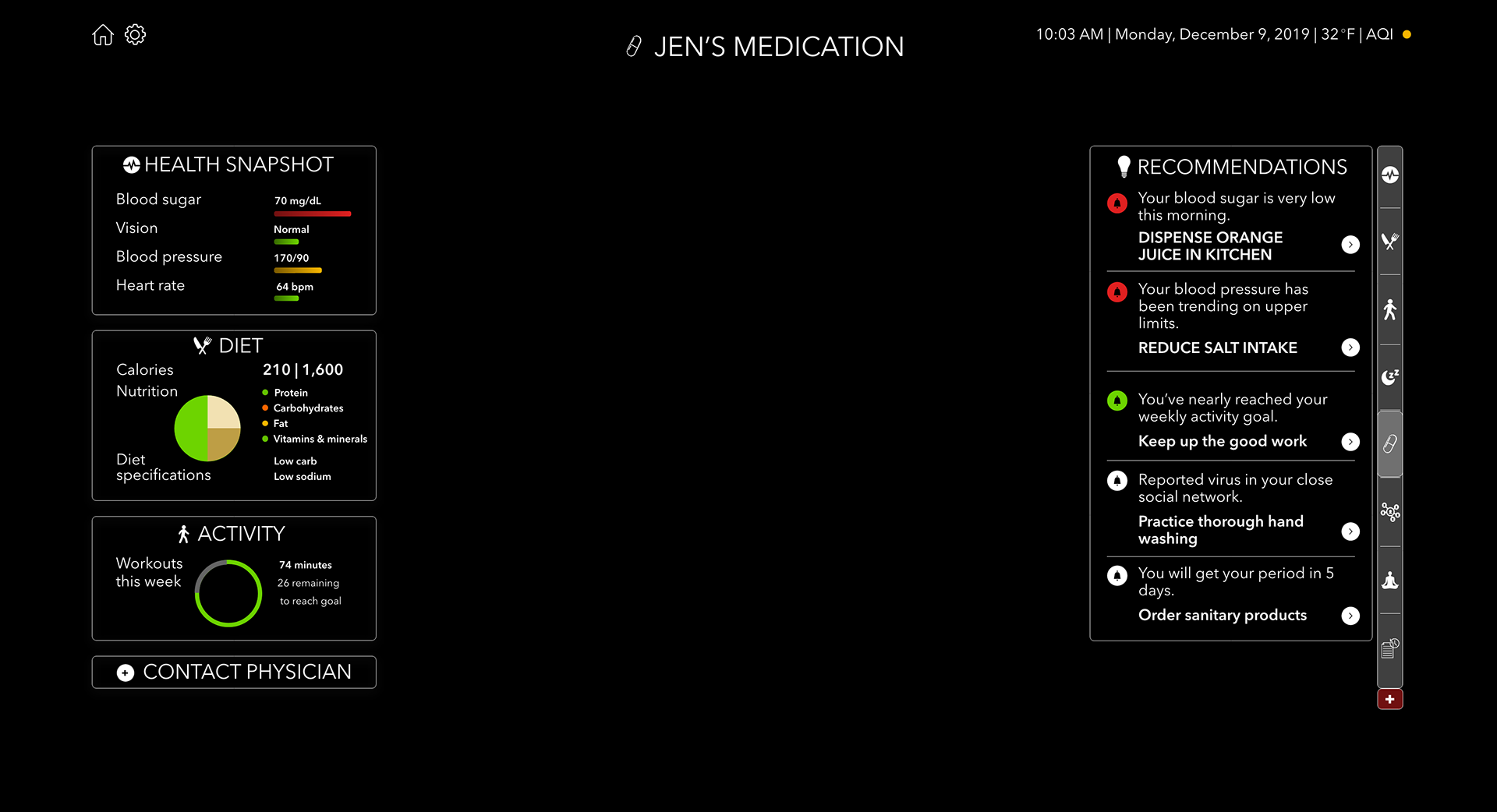

Hive reduces the 'Guesswork' involved in self-care by putting the patient first.
- 15+ interview/feedback sessions with patients, clinicians, caregivers
- Concepted 25+ design ideas → refined to 15 core interactions
- Iterated across 8 rounds of reviews with cross-functional partners
Photograph from user testing sessions for Hive
Thought process for developing the Hive System and projecting into the future.
Design Evolution: Concepts, UI Development and Rapid Iterations
Low Fidelity Prototype Iterations

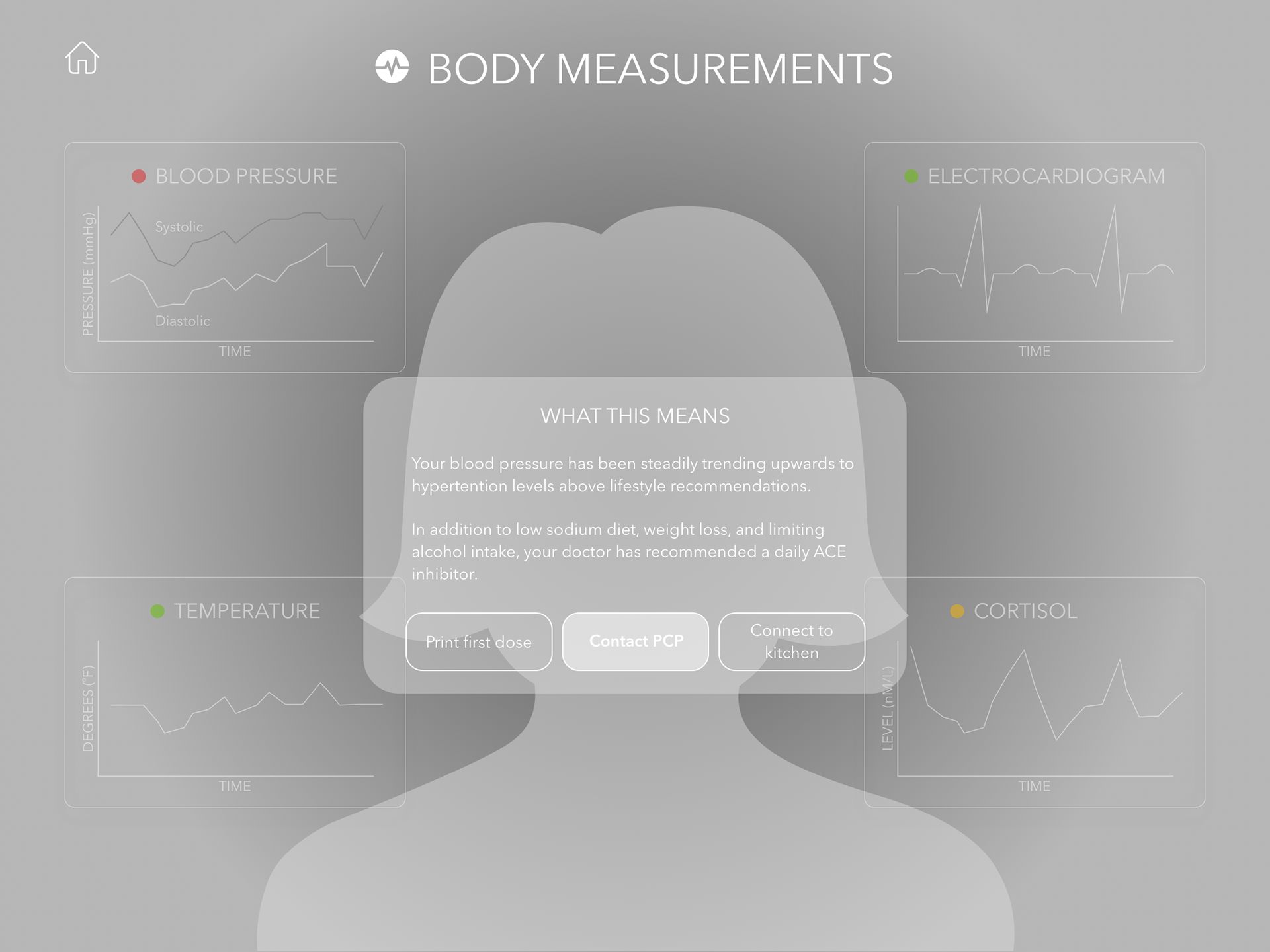
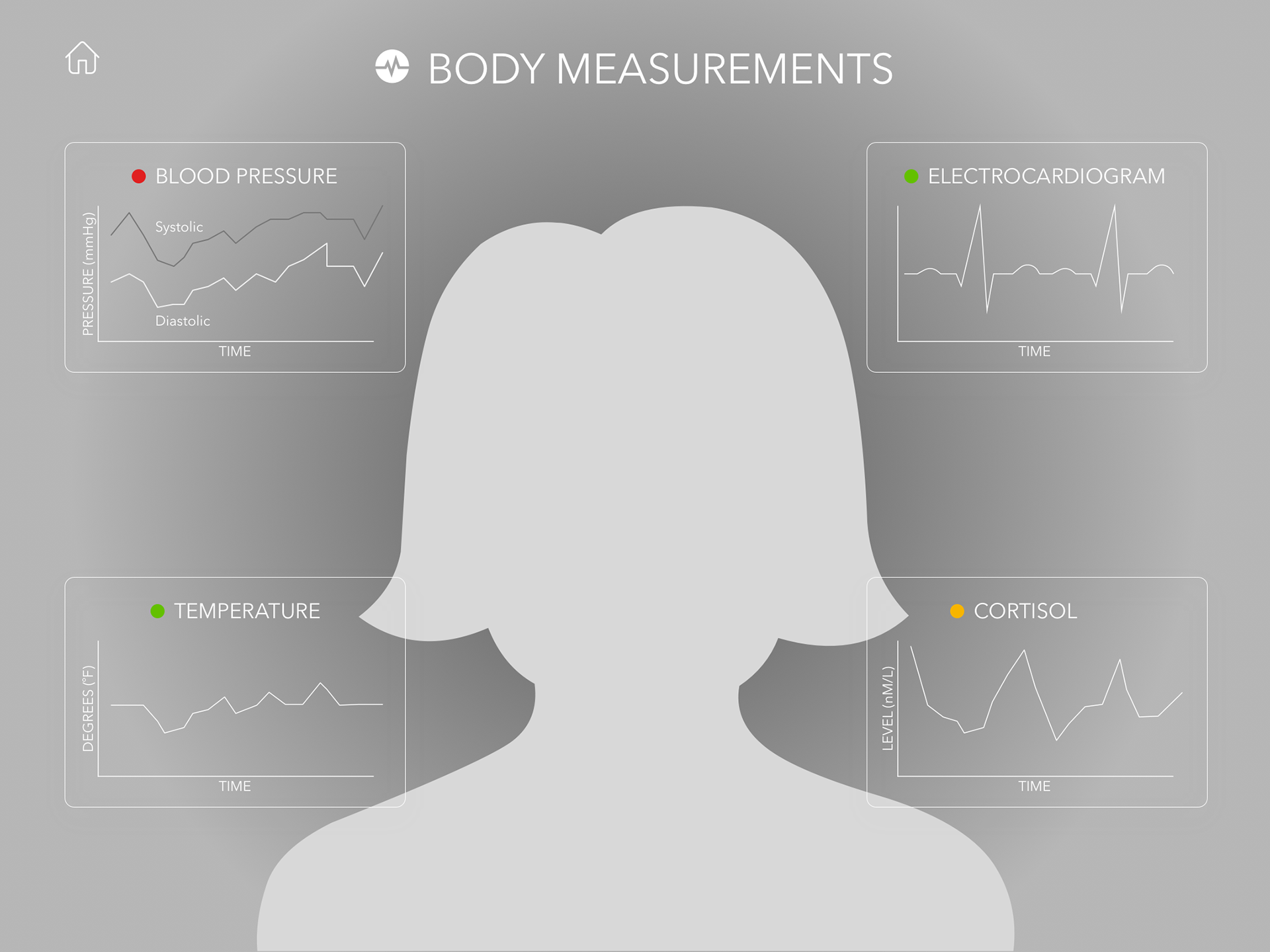
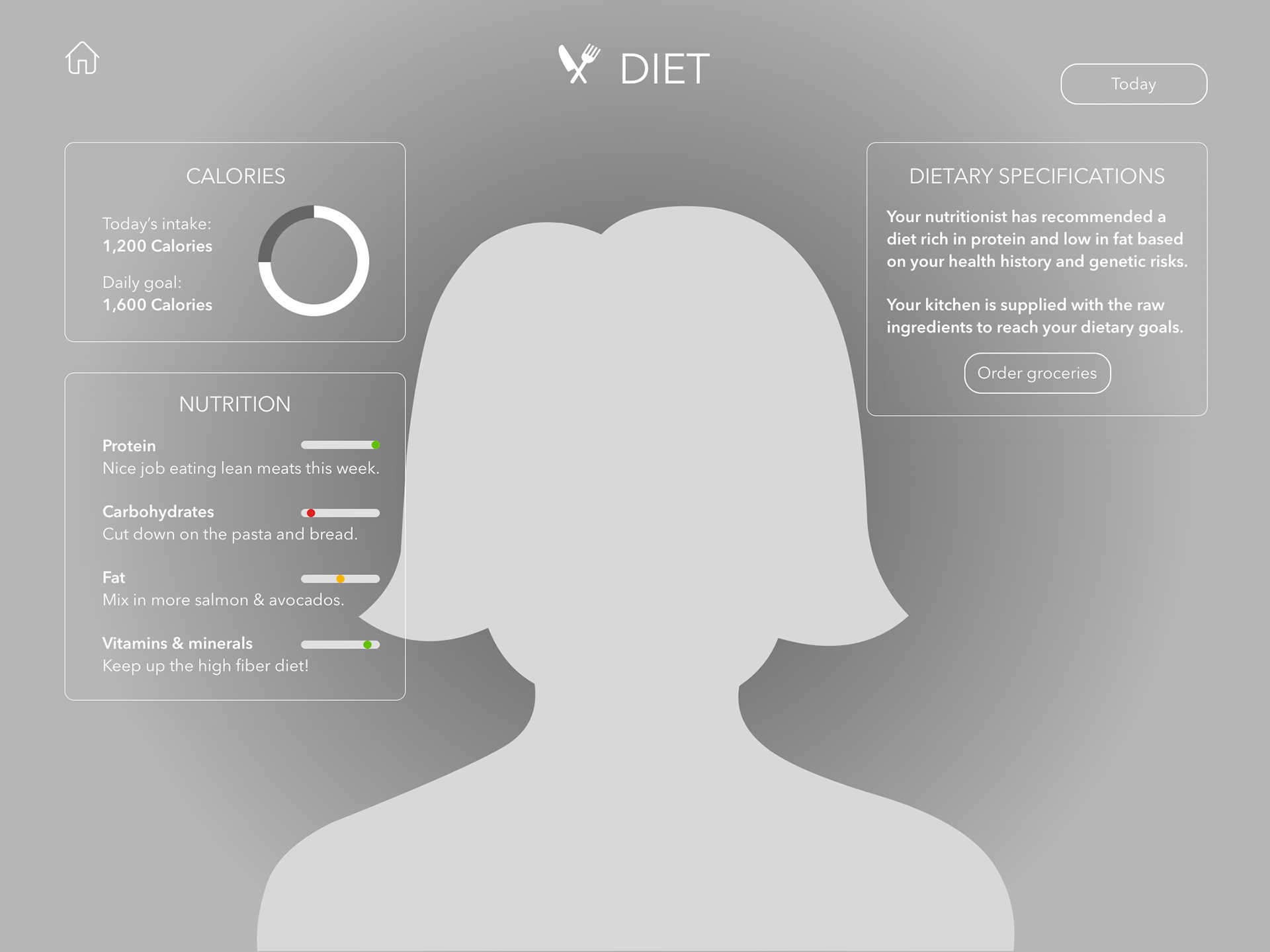

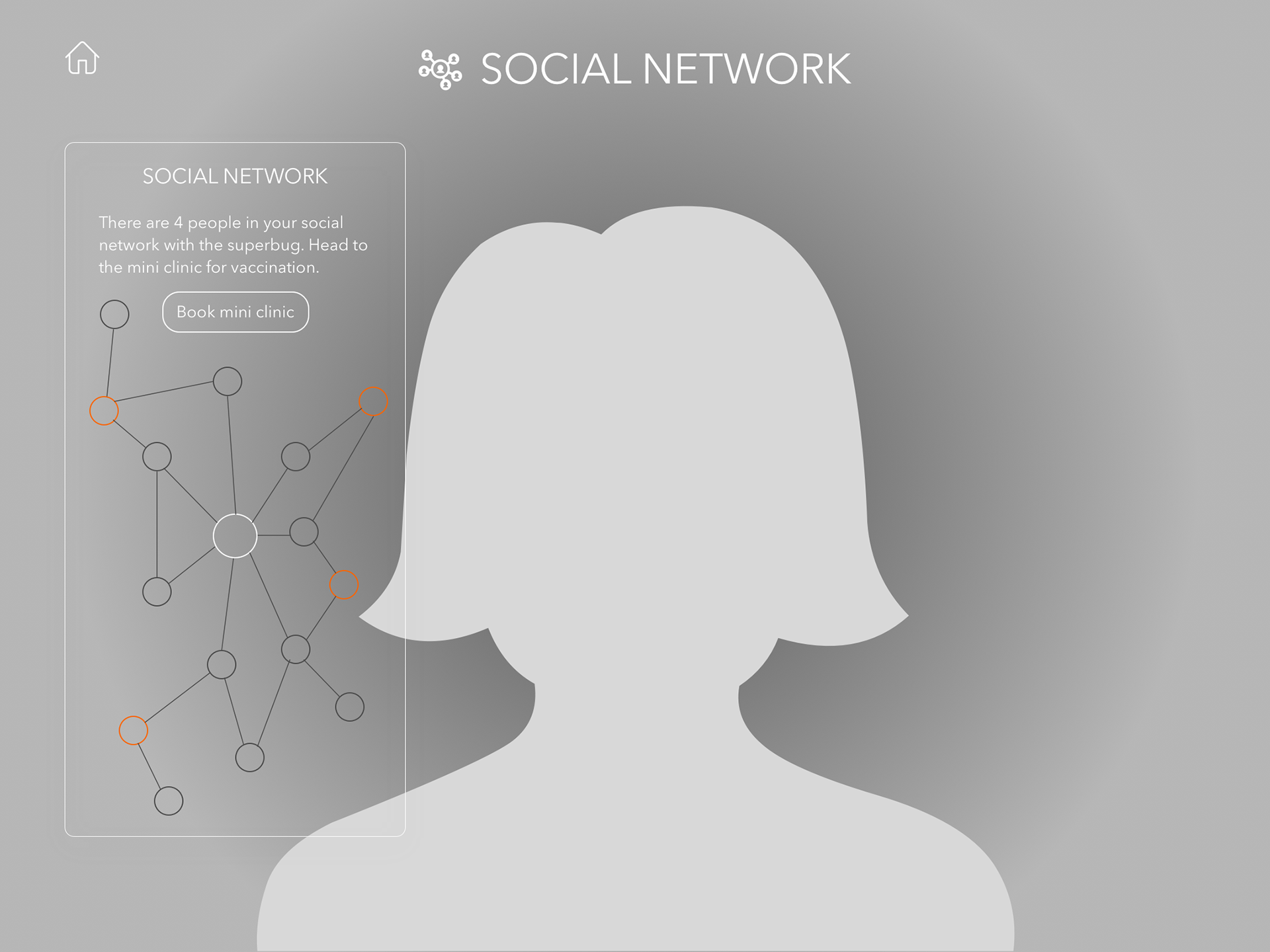
User Research & Journey Mapping
Patients currently spend at least 1.15 hours once they reach the medical care center for regular health checkups.


Reflections
The most challenging aspect was balancing immersive tech with usability—AR/VR had to enhance the experience, not overwhelm it.
Collaborating deeply with healthcare users shaped the final interaction model far more than we expected.
Learned to guide product strategy while still keeping user needs at the forefront of each design decision.
Presentation to the Design jury at Harvard University Graduate School of Design 2019
User Journey video
Ideation phase using sketching and paper prototyping
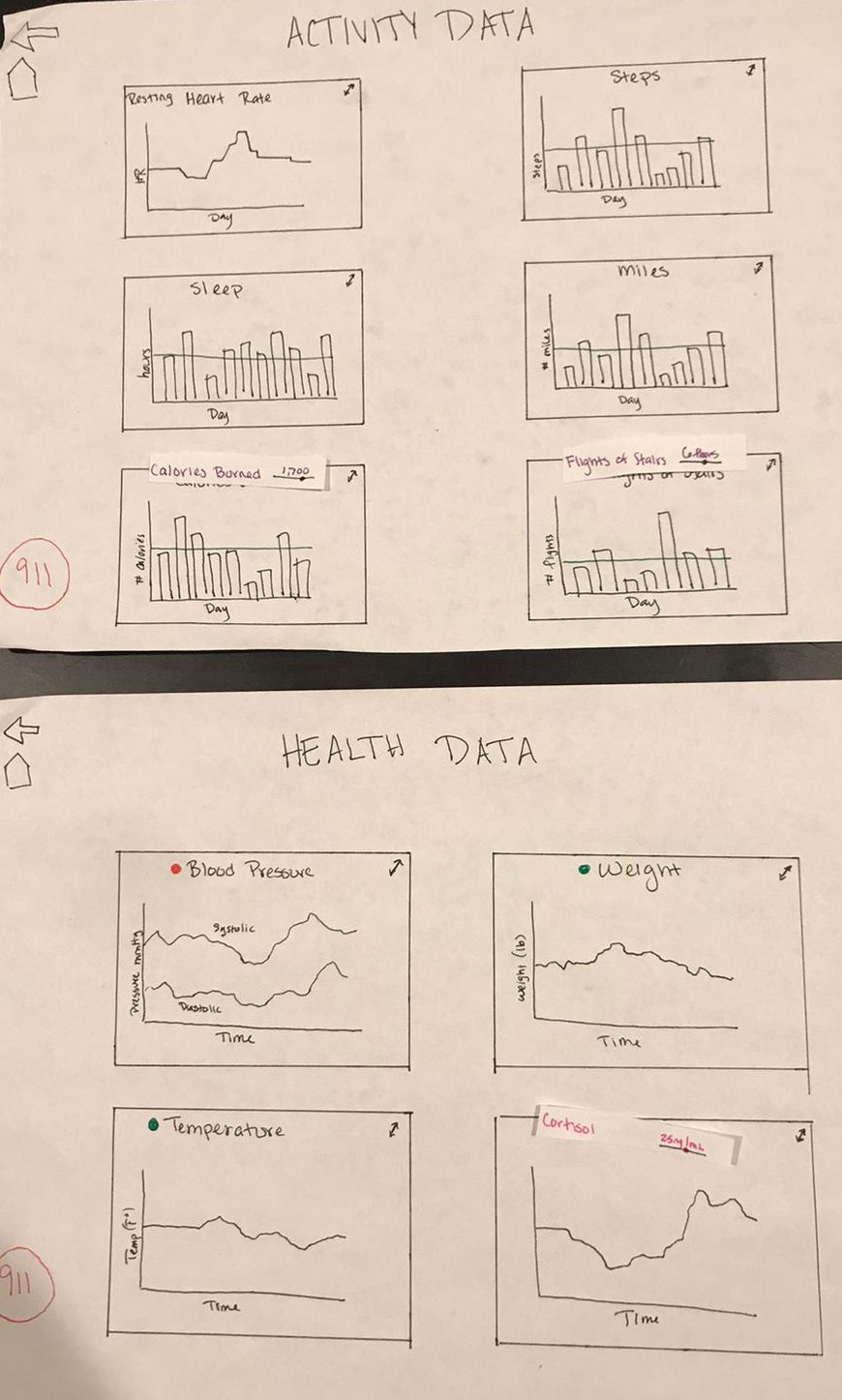
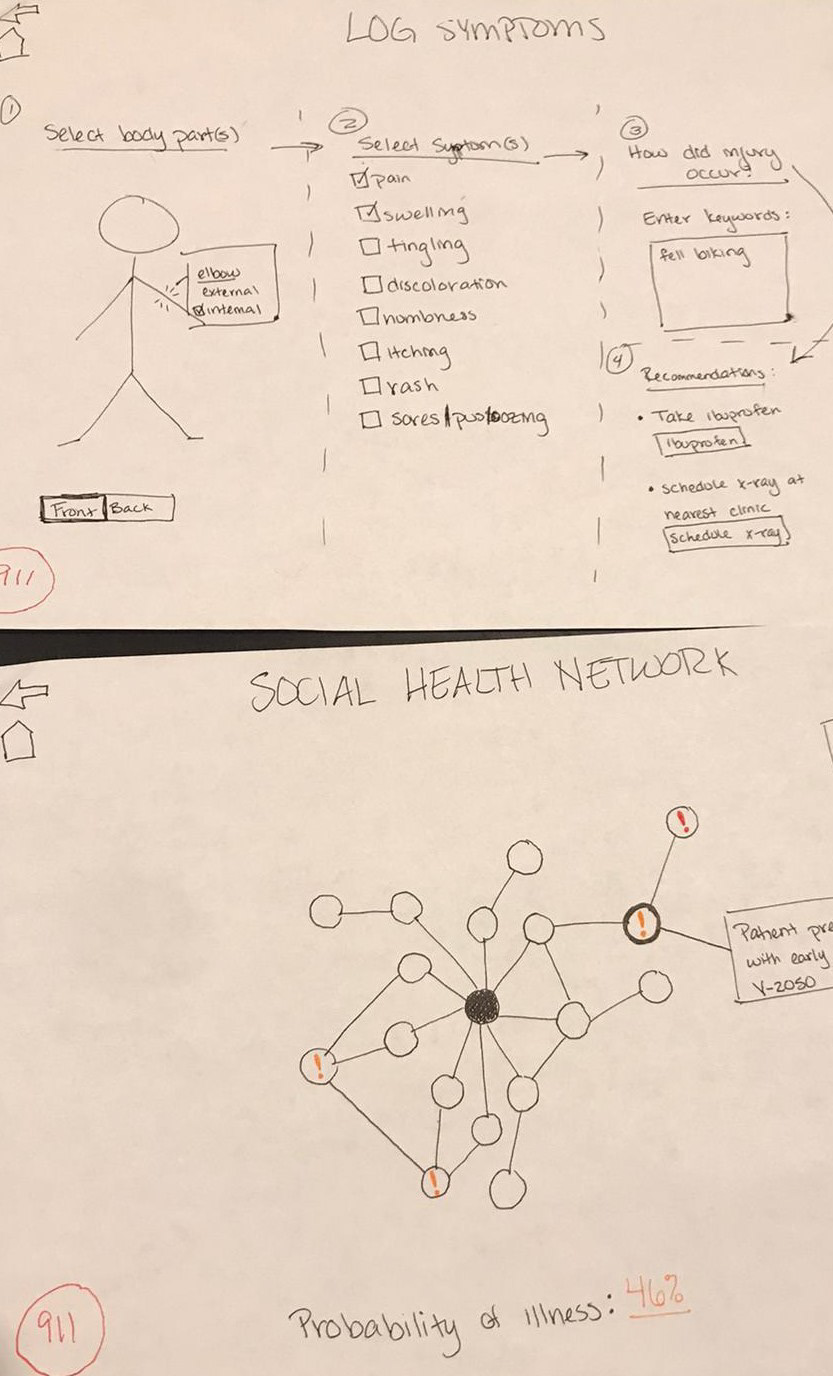
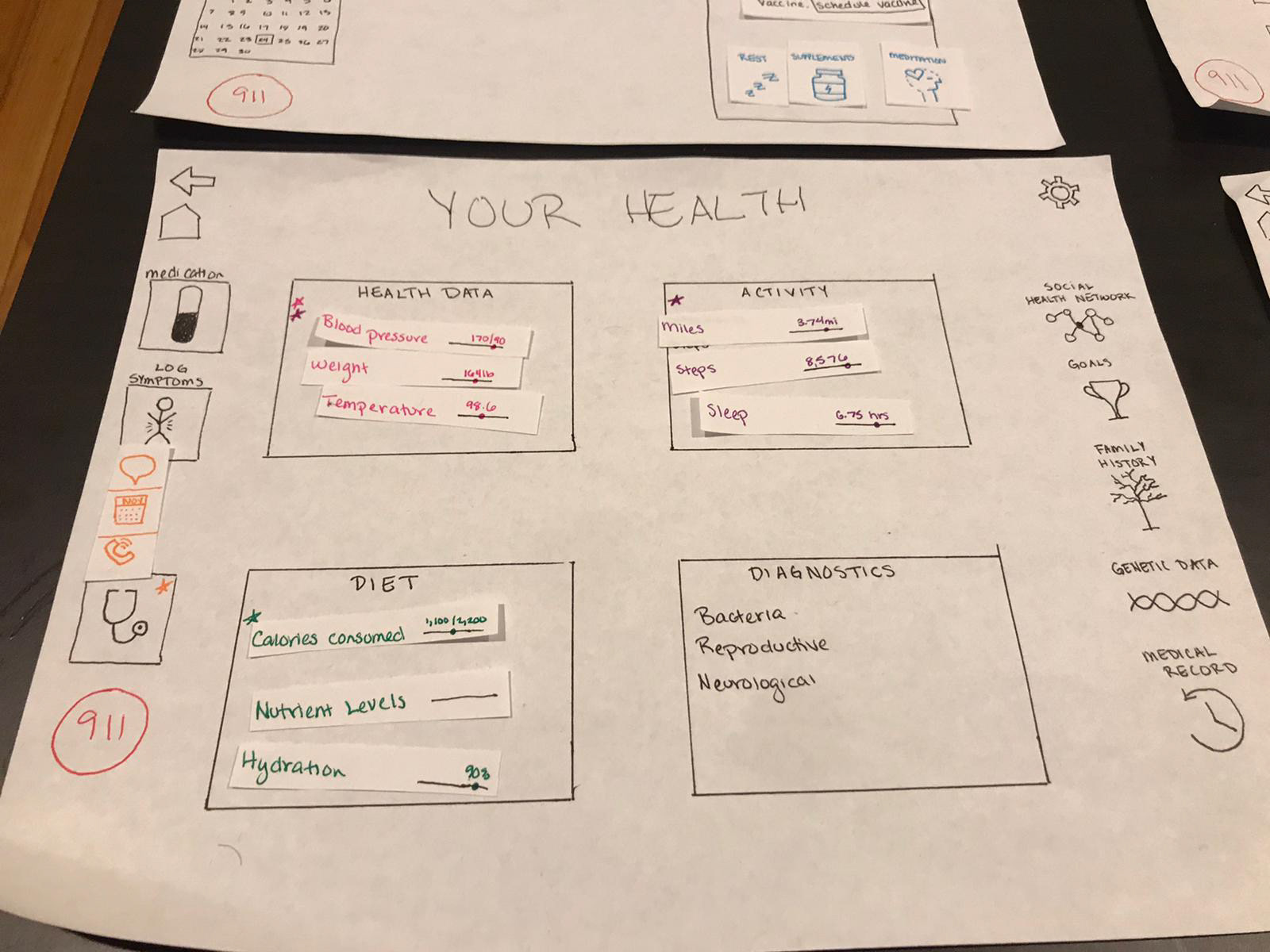
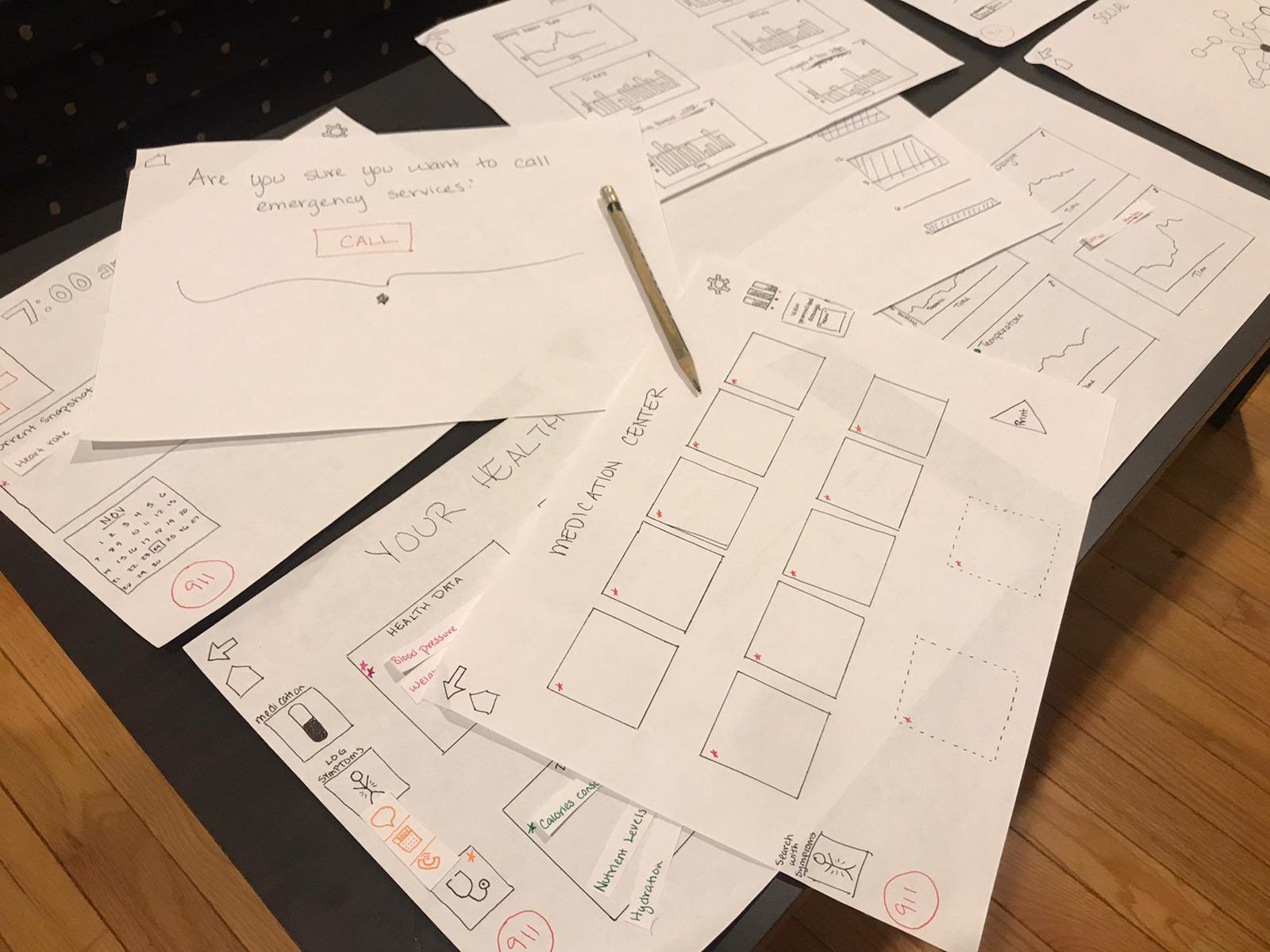


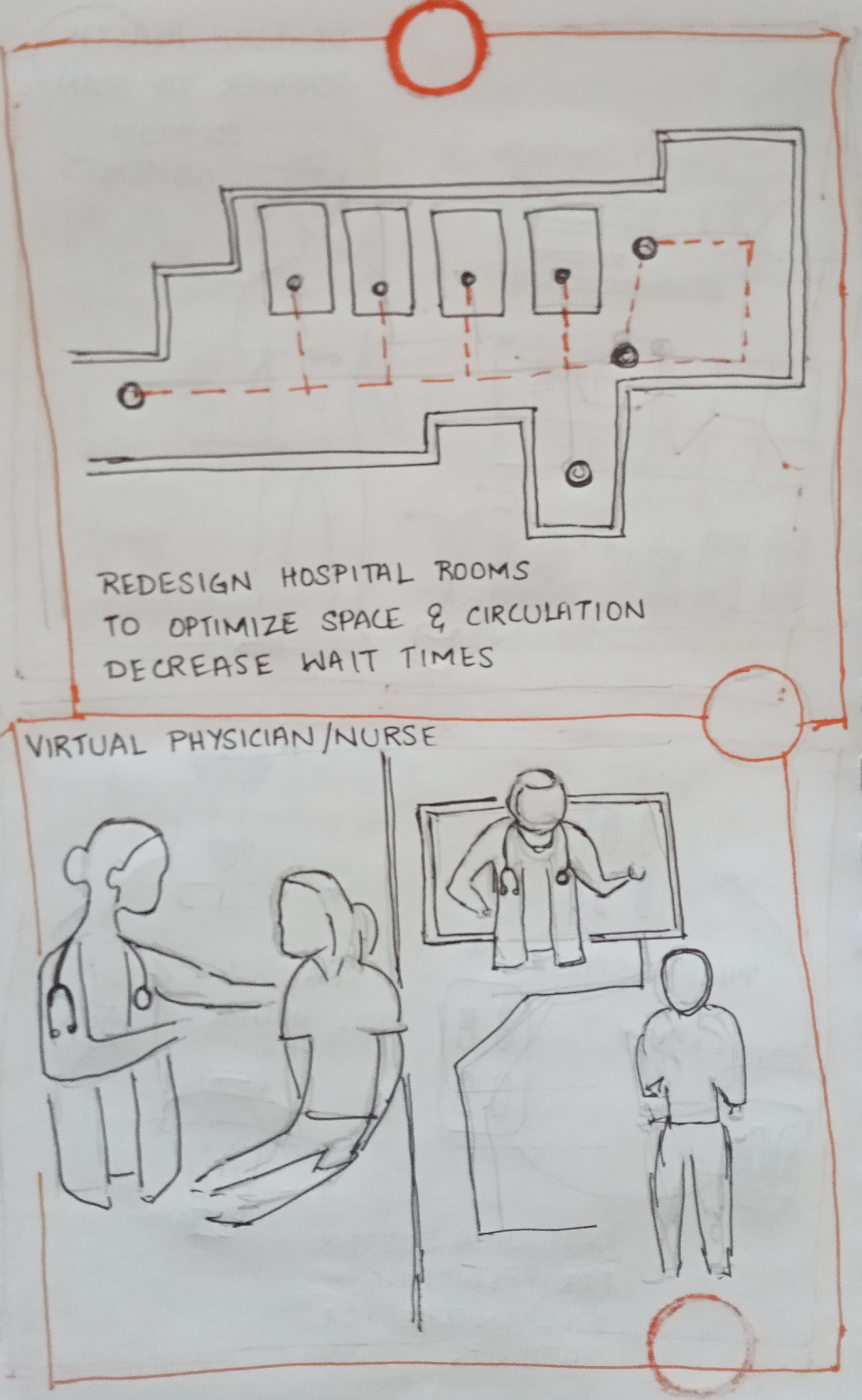
AI Integrated Functionality
The system provides lifestyle recommendations like meal plans, exercise options, sleep status, meditation practice, and preventive health measures derived by AI monitoring of health conditions through wearable devices.
MVP Key Features:
Personalized trend tracking across key health signals
AR/VR overlays for guided exercises and daily routines
Lifestyle recommendations backed by clinical research
Simple, color-coded dashboards that explain “what to do next”
Modular design system for scalable implementation

